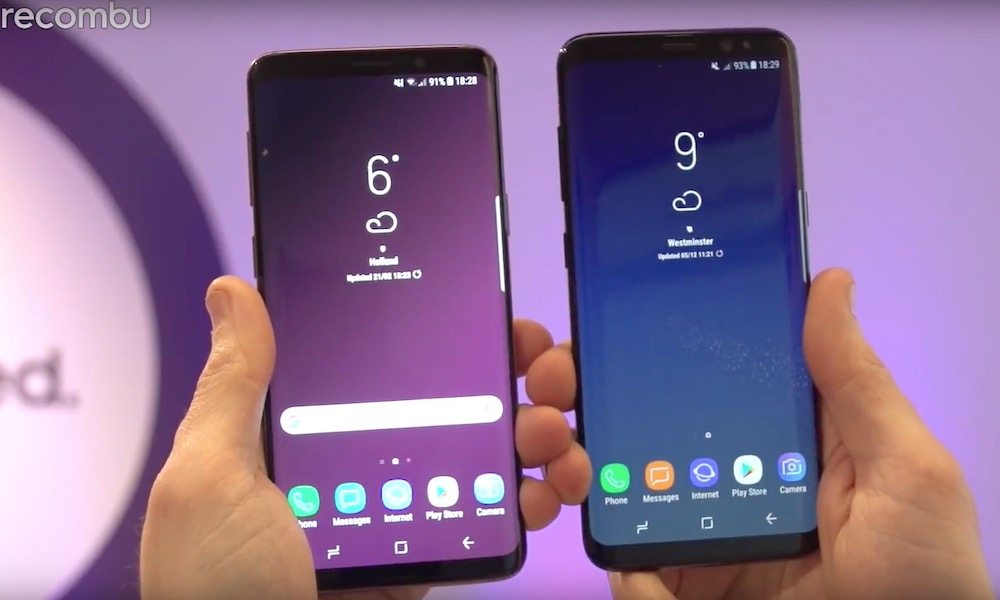iPhone X and 7 Beat Samsung Galaxy S9 in ‘Awkward’ Benchmark Results
 Credit: Recombu
Credit: Recombu
Toggle Dark Mode
The Samsung Galaxy S9 went head-to-head with several Apple iPhones in an early benchmark testing. And despite being Samsung’s latest and greatest technology, it still can’t beat the iPhone X in terms of performance.
According to benchmark comparisons conducted by Anandtech, the Galaxy S9 with an Exynos 9810 CPU lost to the iPhone X’s A11 Bionic in every single test that was performed.
Worse still for Samsung, even the aging iPhone 7 with Apple’s A10 chip beat the South Korean flagship in most cases. Anandtech called the results “awkward.”
The Samsung Galaxy S9 and S9+ come in two variations. One uses a Qualcomm Snapdragon 845 chipset, while the other uses Samsung’s own Exynos 9810 — which outperforms the Qualcomm chip. But while the Exynos CPU is the faster of the two, it still failed to match Apple’s A11 Bionic.
You can see some of the results below, comparing various tasks performed on the chipsets.
- In single-core GeekBench 4 test, the Exynos 9810 received an integer score of 3,724 and a floating point score of 3,440. The A11 Bionic achieved a 4,630 and 3,985 in the same categories, respectively.
- In WebXPRT testing, which measures web-based tasks, the Exynos 9810 scored 178. The A11 Bionic received a 352.
- In a Speedometer 2.0 test, the iPhone X, iPhone 8 and even the iPhone 7 beat out the Qualcomm Snapdragon 845 and the Exynos 9810.
The results were so surprising that Anandtech’s Andrei Frumusanu concluded that there was something “very very wrong” with the Exynos 9810 chip in the Samsung S9+ that he was using.
A Samsung representative told Frumusanu that the demo unit he had access to was running special firmware for Mobile World Congress, and may not have been optimized. But the Anandtech writer said he had a hard time believing they’d throttle the performance of a demo device so significantly.
The site also noted that Samsung may have made a mistake in throttling the Exynos chipset to match the performance of Qualcomm’s slower Snapdragon CPU. If that doesn’t turn out to be the case, Frumusanu wrote, then the S9 may turn out to be an “utterly massive disappointment.”
So while the Samsung Galaxy S9 may have a better display and possibly a better camera than the iPhone X, it seems that the South Korean tech giant still can’t match the performance of the latest Cupertino flagships.
Part of that is likely due to the level of control Apple has over both its hardware and software. Since it makes both iOS and the silicon in its latest devices, it’s able to squeeze out better real-world performance via optimization than Android phones that, on paper, appear to be faster.
Performance is not the only area in which Apple’s devices excel. In a research note published late last year, KGI Securities analyst Ming-Chi Kuo said that Apple’s Face ID technology was at least 2 and a half years ahead of its Android competitors.






